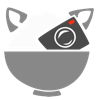Have you ever deeply thought about this question? Many people probably haven’t, and they would simply answer with facts about what they consider their Self. However, there are many other perspectives on this, like Buddhism’s non-dualistic view that there simply is no separate Self. One perspective that resonated with me is Michael A. Singer’s viewpoint that he describes in chapter 3 of “The Untethered Soul.”
So if I ask you “Who Are You?”, how would you answer? Most people would simply say, “I’m Stefan.” But are those letters, S-t-e-f-a-n, who you are? No, that’s merely a label. People actually change their names, but that doesn’t change who they are. So you could answer, “I go by the label Stefan, I’m 29 years old, I live in Germany. My parents are X and Y. I am a software developer and apparently a blogger now.” But is that really who you are? I didn’t ask about your age, your parents, where you live, or what you’re doing. Those things change over time, but you are still you. Well, you could go on and reply, “Okay fine, I am this body that you are seeing in front of you, and who is talking with you right now.” But your body changes all the time as well. Even as an adult, our cells constantly die and are born. In a few years, not a single cell of your current body will remain. But you’re still you, right? Eventually, you’ll probably give up an say, “I’m me! Me, that’s who I am! I’m in here experiencing the world!”
Now we’re getting closer. A very important thing for this is the subject-object relationship. If you are the subject, the one who is feeling, thinking, experiencing, you can’t be the object. You can’t be your thoughts, your emotions, your feelings; those are only things you are experiencing. But at the same time, you still have an intuitive sense of existence that you can’t attribute to any of the objects you are perceiving. That intuitive sense of existence is your consciousness.
Even if you take away all your objects of consciousness, you can still be aware of experiencing nothing. From page 28 of “The Untethered Soul”:
It doesn’t matter how many things are in front of you; if you turn off the consciousness, there is nothing. If you are conscious, however, there can be nothing in front of you but you are fully aware that there is nothing.
Throughout the book, the author also takes apart what we usually consider our Self. It is simply a construct of our mind, a castle built over many years, with our past experiences and memories as the foundation. Even if we were not consciously doing it, it is something we have built ourselves. The things we like or don’t like, our values, our opinions, our fears, those are just parts of the castle we consider to be the Self. But it is not who we are. Even if you consider yourself someone who doesn’t do a certain thing, in the heat of the moment, you could still ignore that and do it anyway. It doesn’t change who you are.
I’m not saying that it’s bad to have likes or dislikes, or to have values you live by. But you can have those things and still realize that they are not you.
To be honest, writing about this specific part of the book makes me realize that, by itself, this viewpoint might not have much of a benefit, at least it might be hard to recognize. But personally, I found it very helpful in the context of the whole book. And to be clear, while I am writing about these things, it doesn’t mean that I have fully internalized them. But I still feel that they help me deal with certain situations in daily life better than I did before. I am slowly able to disconnect from the things that happen to me and recognize that they do not have to affect me. And this not only includes external things, but also internal things like thoughts and emotions. I am merely the one who experiences these thoughts and emotions, but it is still my choice how to react to them.1
What do you think? Did this make the last post, The Voice Inside Your Head, a bit clearer?
-
Yes, I am aware that there are also theories that everything is deterministic, that we don’t actually have free will. That could be a whole different topic to get into. ↩

Comments
Please don't enter any personal information. All comments are public! You can edit or delete your comment within 15 minutes of submitting it (only before you leave or refresh the page). Comments are manually approved by myself.